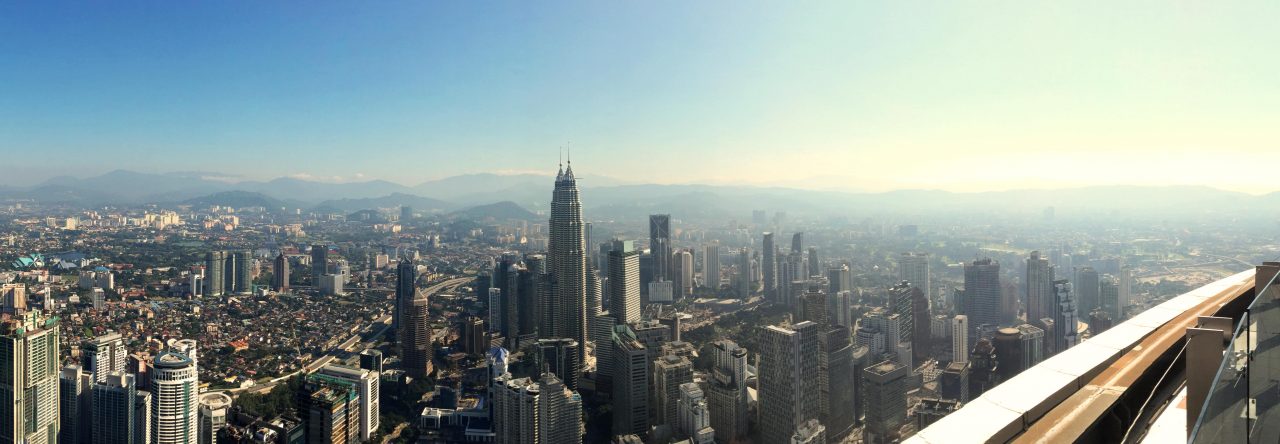The main utility bills for most residents in Kuala Lumpur are electricity and water. Gas is sometimes used for the kitchen hob, but is not mains-supplied – you buy / refill bottles, just as you would for a gas-fired barbecue back home.
When I first arrived here, I didn’t really know what to expect in terms of the cost of my utility bills. I knew that they would probably be lower than back home in the UK, though.
Coming from a colder country where almost no-one has domestic air conditioning and instead has (usually gas-fired) central heating, to a hotter one where everyone has air-conditioning but no heating and, in most cases, no gas, I had very little experience or point of reference to go on.
I reckoned the biggest expense would be the air conditioning. It’s fairly easy to calculate a rough cost, based on the horsepower of your a/c units – typically, a 1-horsepower unit is going to use approximately 0.75 kilowatt-hours (kWh); domestic electricity in Malaysia is charged in tiers, starting at 0.218 MYR per kWh for the first 200kWh per month, then 0.334 MYR for the next 100kWh, and rising in tiers up to 0.571 MYR for anything over 900kWh. But I had no idea how much air conditioning I would need to use – would it be perhaps a few hours each day, or 24/7?
To give myself a rough budget, I assumed I’d have one unit, in the bedroom, running for eight hours though the night and, allowing for me not being at home all day every day, I estimated I’d have two units running for perhaps six hours during the day. So twenty hours total per day, giving a cost of around 4.4 MYR (a bit under £1) per day for the first ten days of the month, 6.7 MYR for the next five days and around 10 MYR per day for the rest of the month – so about 225 MYR per month, or roughly £45.
Obviously on top of that there’s the cost of running lights, fans, kitchen and other appliances, TVs, computers and so on. But most of that lot I reckoned would be pretty trivial in the scheme of things, aside perhaps from the fridge and the (electric) kitchen hob.
So I estimated I’d spend maybe 300-350 MYR, or roughly £60-70 per month on electricity. This is about £20 a month less than I was spending at home on gas and electricity combined. But of course, that was just an estimate – the reality might turn out to be a lot more!
Water I had literally no idea, but I had been told it was ridiculously cheap. Unlike electricity, which is billed monthly, water is billed every four months, so it would be a while before I got my first bill.
For the first month or so, I kept a close eye on my electricity meter and was quite careful in my use of air conditioning, water heaters, electric hob and so on. I experimented with using fans rather than air conditioning at night (conclusion: you need the aircon), and as it turned out, I hardly used the water heaters – in this climate, I’m finding cold showers are infinitely preferable to hot ones! (Although probably worth mentioning that the water isn’t exactly cold in any case…).
I needn’t have worried. I found my daily use was around 10 kWh when I was being conservative with the air conditioning, and only went up to about 14 or 15 kWh when I was making much more use of it. So far my bills have worked out at around 150 MYR (roughly £30) per month.
One thing to note though, and a good reason to keep an eye on your meter. I’m not sure yet whether this was just a one-off, or something that happens widely (though I have seen quite a few complaints online). On my first couple of electricity bills, my meter was under-read quite substantially – meaning I appeared to be using less than 200 kWh per month; this was then corrected on the next bill, and so far appears to have been fairly accurate since.
But the upshot of that of course is that, if as a result of under-reading, you’re not making full use of the cheaper tariff bands, then you’ll be making heavier use of the higher bands when the billing catches up. The difference isn’t likely to be much, perhaps a few tens of ringgit by my rough calculations, but if the electricity company (NB there is only one – no market competition here) does that to all its customers once or twice a year, that adds up to a lot of extra revenue for them… Of course, I couldn’t possibly comment on whether that’s happening deliberately, or whether it’s common. I’m sure it’s just an honest mistake. Ahem. Cough.
Water, as it turns out, is indeed cheap. But note you will get two bills, which threw me at first. One is for waste water, which is issued by the water company and in my case worked out at about 8 MYR (roughly £1.60) per month. The other is for water consumption, and is issued by your condo management company (assuming you’re living in a condo!). I’m apparently using two-to-three cubic meters of water per month (that’s two-to-three thousand litres), at a cost of roughly 6 MYR (about £1.20).
So in total, my utility bills so far are working out at a little under £35 or so per month. Makes a change from paying almost £100 a month back home! 🙂

Leave a reply